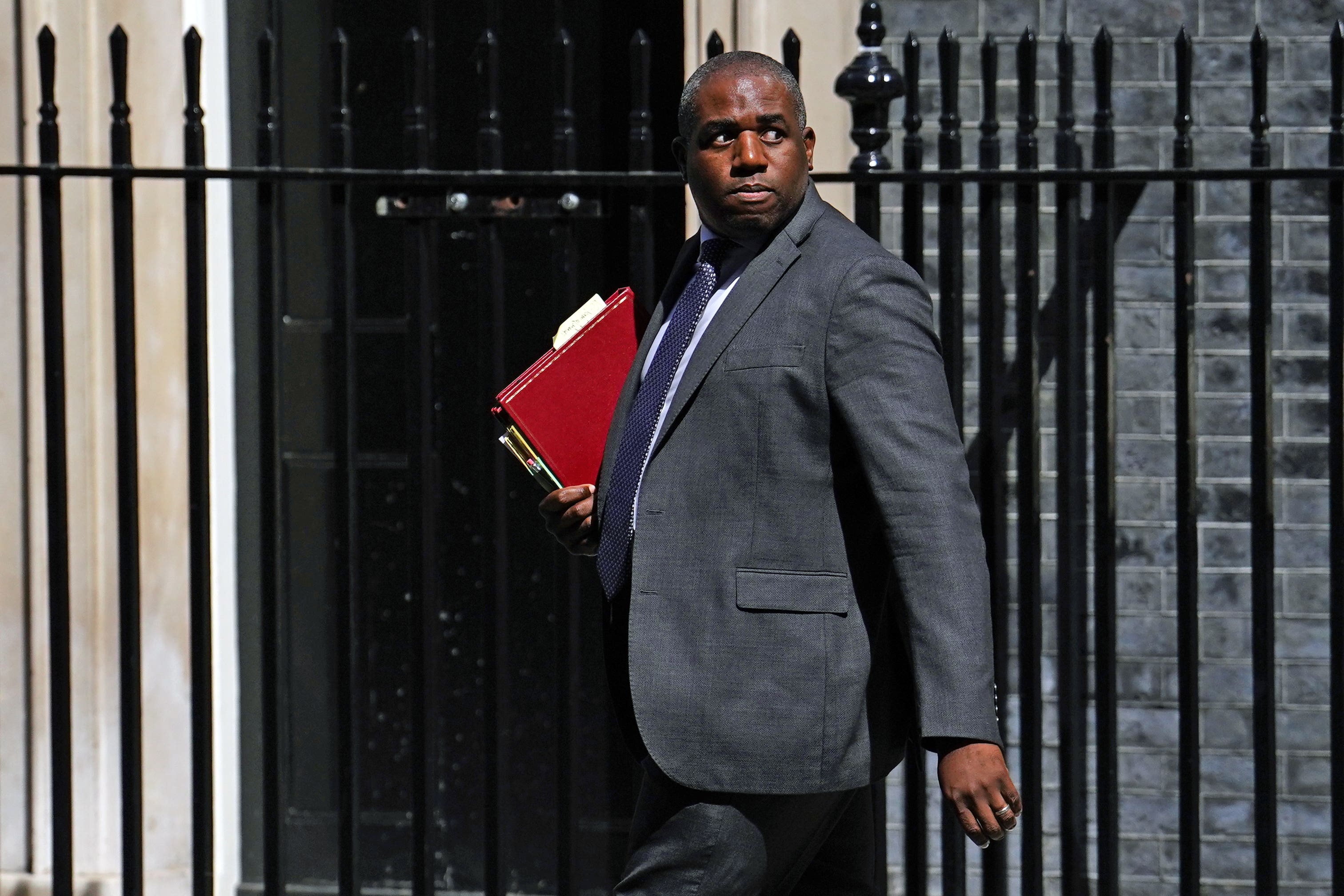UK to suspend around 30 export licences to Israel, says David Lammy
The Foreign Secretary released the details in a statement to the House of Commons.

Your support helps us to tell the story
From reproductive rights to climate change to Big Tech, The Independent is on the ground when the story is developing. Whether it's investigating the financials of Elon Musk's pro-Trump PAC or producing our latest documentary, 'The A Word', which shines a light on the American women fighting for reproductive rights, we know how important it is to parse out the facts from the messaging.
At such a critical moment in US history, we need reporters on the ground. Your donation allows us to keep sending journalists to speak to both sides of the story.
The Independent is trusted by Americans across the entire political spectrum. And unlike many other quality news outlets, we choose not to lock Americans out of our reporting and analysis with paywalls. We believe quality journalism should be available to everyone, paid for by those who can afford it.
Your support makes all the difference.The UK Government is suspending around 30 arms export licences to Israel amid concerns a “clear risk” exists that they could be used to breach international humanitarian law.
Foreign Secretary David Lammy said a review conducted by the UK Government could not “arbitrate on whether or not Israel has breached international humanitarian law” in Gaza, but ministers have a legal duty to review export licences.
Mr Lammy said the criteria states the Government will not issue export licences if there is a “clear risk that the items might be used to commit or facilitate serious violations of international humanitarian law”.
He also announced new sanctions on four Islamic Revolutionary Guard Corps (IRGC) force targets, who “have a role in supporting Iranian proxy actions in Iraq, Syria and Lebanon”.
This is not a blanket ban but targets relevant licences that could be used in military operations in Gaza.
He told the House of Commons: “It is with regret that I inform the House today that the assessment I have received leaves me unable to conclude anything other than that for certain UK arms exports to Israel there does exist a clear risk that they might be used to commit or facilitate a serious violation of international humanitarian law.
“I have informed the Business and Trade Secretary and he is therefore today announcing the suspension of around 30 from a total of approximately 350 to Israel, as required under the Export Control Act.
“These include equipment that we assess is for use in the current conflict in Gaza.”
Mr Lammy said the Government does “not take this decision lightly” and stressed it is “not an arms embargo”.
On sanctions against IRGC-affiliated people and entities, the Foreign Secretary said: “We’ve sanctioned over 400 Iranian individuals and entities and through our work with partners, we are exposing and containing Iran’s destabilising weapons development, where soon we’ll be introducing further regulations to bolster existing bans on the export of goods and technology significant to Iran’s production of drones and missiles.
“So, let me be clear, we will continue to work with Israel and our partners to tackle the threat from Iran across the region. This Government will continue to stand for Israel’s security, and we will always do in a manner which is consistent with our obligations to domestic and international law.”
Responding, Conservative shadow foreign secretary Andrew Mitchell warned conflict in the Middle East could go in “two radically different directions”.
He told MPs: “We will look carefully at the limited arms embargo memorandum that the Foreign Secretary has promised the House.”
The Opposition frontbencher added: “It does feel as if we are at a point where this conflict could go in two radically different directions.
“While the region faces a potential conflagration, it is also possible that cooler heads on all sides might prevail. Britain’s role must be to help facilitate a sustainable end to the current suffering.”
Mr Mitchell also said: “The only way this conflict will be brought to an end and for the suffering to end is though the release of those hostages.”This is not a blanket ban but targets relevant licences that could be used in military operations in Gaza
This is not a blanket ban but targets relevant licences that could be used in military operations in Gaza
Business Secretary Jonathan Reynolds, in a written ministerial statement, said: “This includes components for fighter aircraft (F-16s), parts for unmanned aerial vehicles (UAVs), naval systems, and targeting equipment.
“The Government condemned Hamas’ barbaric attack on October 7 and supports Israel’s right to defend itself in line with international law. The Government is also working intensively with international partners to encourage wider regional de-escalation in the context of recent events.
“This is not a blanket ban but targets relevant licences that could be used in military operations in Gaza.
“Assessments of Israel’s commitment to international humanitarian law will continue, including with regard to the provision of food and medical supplies to civilians in Gaza and the treatment of detainees, and may change over time to allow reinstatement of these licences.”
He added: “The UK stresses that there is no equivalence between Hamas terrorists and Israel’s democratic government. The UK remains committed to supporting Israel’s self-defence.
“But to license arms exports to Israel, the UK must assess their compliance with international humanitarian law, notwithstanding the abhorrence of their opponents’ tactics and ideology.”
The war began on October 7 when Hamas-led militants broke into Israel, killing around 1,200 people, mostly civilians, and abducting around 250 others.
More than 40,000 Palestinians have been killed in Israel’s counter-attack in Gaza, according to the territory’s Health Ministry, which does not distinguish between combatants and civilians in its count.